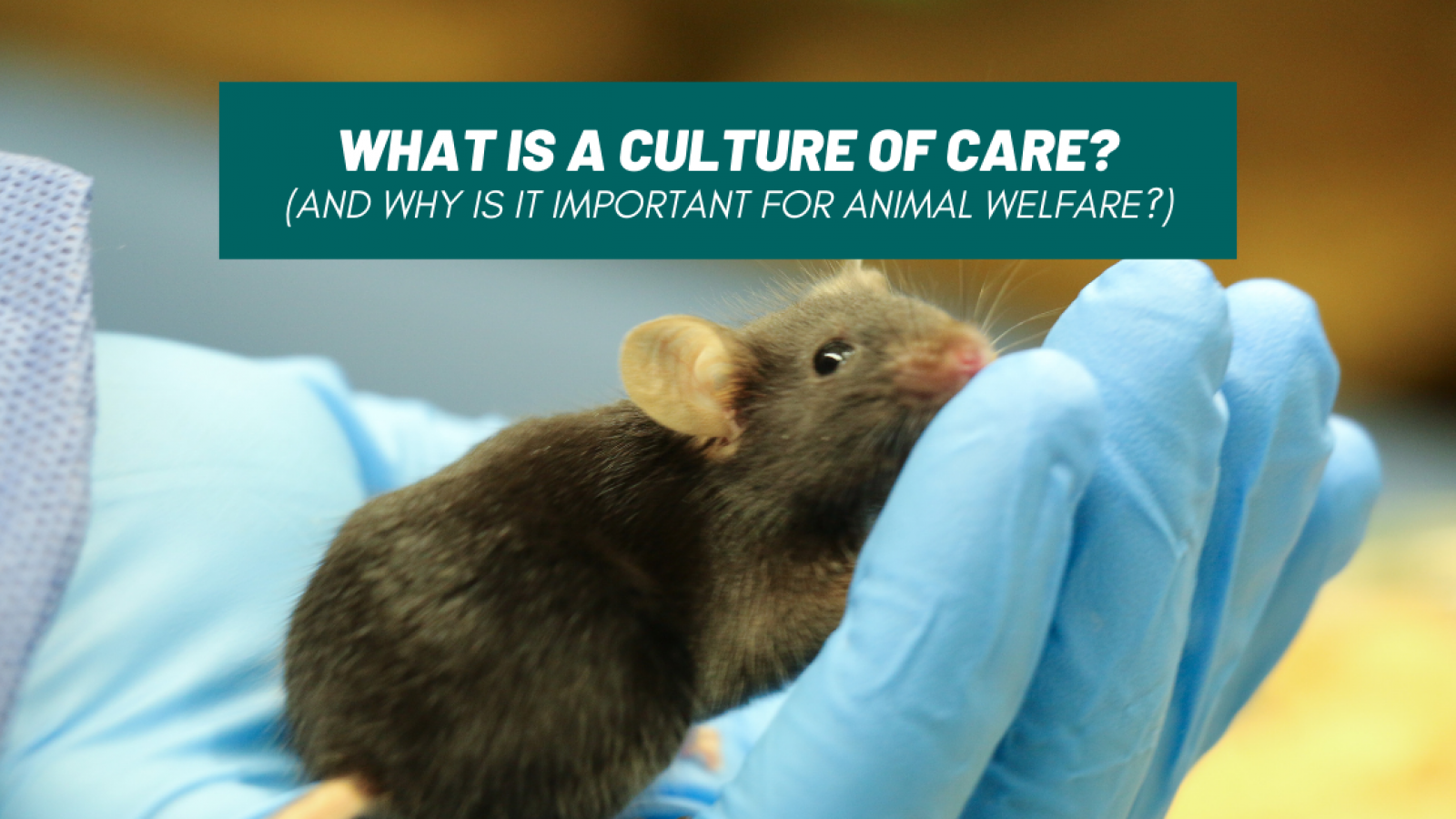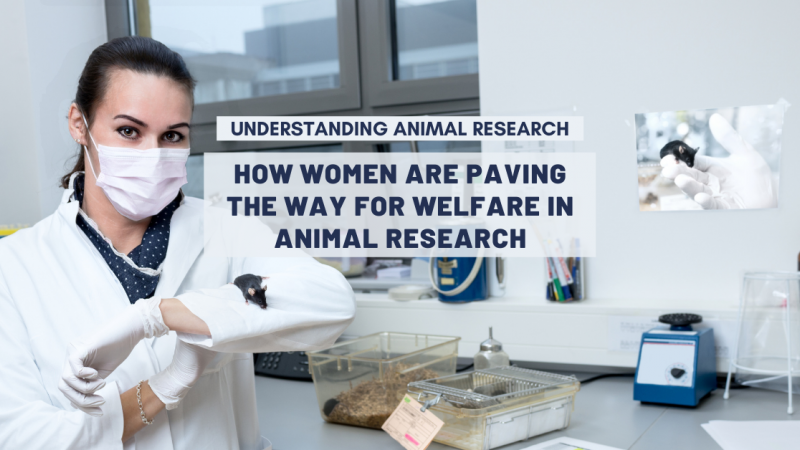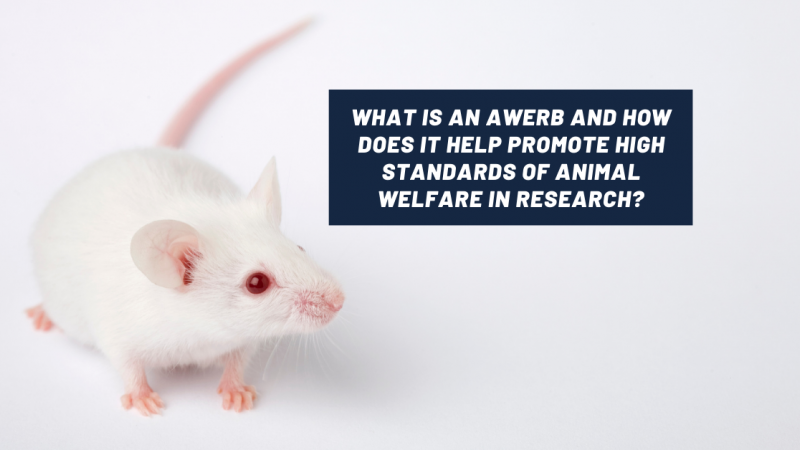What exactly is a culture of care?
(And why is it important for animal welfare?)
Culture of Care is not a new term, but over the last 10 years it has been used increasingly in laboratory animal science (LAS). As a communicator with one foot in bioscience and another in social science I wanted to understand what my colleagues meant by it, and soon realised that there were many different ideas. The term felt like jargon, but I wondered whether the idea of care, as opposed to welfare (which is part of the sector’s ethical practice and firmly rooted in scientific method) could help us understand working with animals differently. What happens when you apply the idea of care to the idea of organisational culture?
It was asking questions like these that led to my new paper, Caring for Those Who Care, published in the June 2021 edition of Social and Cultural Geography. I quickly found there are many different ideas about what care is, underpinned by different philosophies and schools of thought. Most looked at relationships between people, but I was looking for something that included the way we care for animals. It also needed it to be useful, providing a set of ideas or a framework that could be applied in a laboratory setting.
Care, as distinct from welfare, is a difficult concept to pindown. It is broadly agreed, however, that care means to work, physically or emotionally, to improve another’s situation. Outcomes matter because if the cared-for don’t experience a benefit there has, arguably, been no care. And an absence of care is neglect.
Care work takes two forms:caring for someone (or something) and caring about. Caring for an animal, concerns husbandry practices and ensuring their welfare. Caring about them is different. It’s affective – a feeling – and it is generally agreed that for care to take place the caring about aspect is the most important. It’s not care without it.
I believe that care is a ‘wicked problem’ for the laboratory animal science (LAS) sector. Wicked problems are those with no simple answers, where apparent solutions undermine or contradict each other. In LAS we need our animal facilities to embrace caring cultures so that the people who work there embody ethical practices and good care. Such facilities are better places to be. They focus on the needs of the animals and support their staff; but the demands of caring – to connect emotionally and to put the cared-for individual first – are at odds with the purpose of research animal facilities. Ultimately, it is the LAS organisation’s aim is not to provide care, but to carry out research. What happens when the need to create knowledge conflicts with the need to care? Is caring something that the LAS community wants to be, or is the idea of a culture of care just rhetoric?
My paper asks but doesn’t fully answer these questions. They are complex problems without complete solutions, but I hoped to shed some light on how to manage them. Within the care literature I found a framework that works well for our community: Joan Tronto’s political ethic of care.
The ethic has four dimensions which I have applied to care in animal facilities:
- Responsibility, which asks why we are responsible for care, in this case the cultural, ethical and legislative responsibilities that are placed on individuals and how they see those responsibilities as part of their care role.
- Attentiveness, which is the idea that other’s needs matter, as does the ability to recognise and attend to them. In animal facilities staff should be attentive to the animal’s needs, but also to one another’s needs. Attentiveness is a difficult moral quality to achieve and is easily worn down by institutional hierarchies and a lack of trust.
- Competence focusses care on outcomes, so that care takes place when a caregiver actively improves the situation for the recipient. The ultimate aim of an organisation in producing scientific knowledge may act against caring outcomes, but the main limiting factors on caring outcomes are oftenresources (particularly having enough people available) and training (so that those people could provide help where needed).
- Responsiveness focusses on the power relationships between the carer and the cared-for. In LAS I have come to think of this aspect as ‘compassion’, the vulnerability of individuals as they provide care for the animals and for those around them. The need to manage personal emotional stress in laboratory animal work can erode care.Striking the right balance between attachment and detachment in a LAS setting is a huge challenge for individuals and their organisations as they build a culture which allows for and recognises emotional needs and labours.
Viewing care as an ethic means that it can be applied broadly, to animal as well as human relationships. It also offers principles that can guide LAS practices. For example, we all know that poor communication undermines care, but Tronto’s ethic of care tells us why, so that we can work out what to do about it. In my own research I held a series of focus groups with UK technicians and researchers in animal science and explored how these ideas could be applied to their institutional cultures.
The focus groups revealed the importance ofthe human-human relationships in creating and developing care in facilities. Without good relationships in place, effective care for the animals can quickly be eroded as individuals experience burn-out.When individuals are under severe stress, standards and principles can easily slip without anyone noticing. If we want to look after the animals effectively, we need to focus on the mental and emotional health of the people who care for them too.
I never expected this work to provide a solution to culture of care, but I hope it takes us all a step further. There are specific measures that can be taken which will build towards caring laboratory environments, and clear danger signs that warn of erosions in a culture of care. Exactly what we mean by care and how we advance towards it will need to be kept under continuous review, monitored considered and worked on, but the potential rewards are worth it, not only for laboratory animals, essential for biomedical science, but for the complex animals who take care of them too.
Bella Williams, June 2021
Caring for those who care, towards a more expansive culture of care in laboratory animal facilities is published online: https://doi.org/10.1080/14649365.2021.1939123
Last edited: 27 October 2022 18:19




